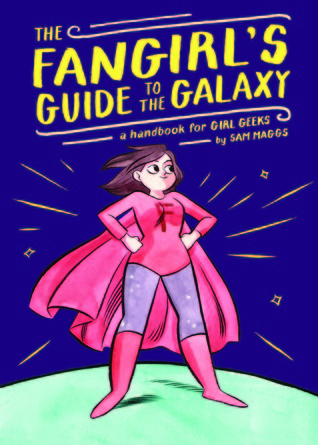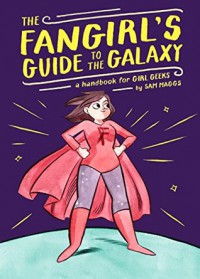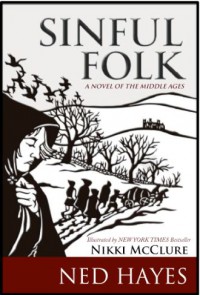I attended my first science fiction convention in the 1970's. My contacts with fandom were either in person or through the mail. Being a fan was very important to me. It was central to my life and identity. In addition to attending cons and meetings of local fan organizations, I wrote for printed fanzines and APAs (Amateur Press Associations). I would write a zine for the APA on a typewriter, get it copied at a copy shop and send it to the Central Mailer, who would collate everyone's zines, add a cover with art created by one of the members and mail out the stapled together publication to everyone on the members' list. It was a different world. For the author of The Fan Girl's Guide To The Galaxy and the generation that this book addresses, it really was their grandmother's fandom.
I eventually switched to online fandoms in the 1990's. I participated in newsgroups and discussion boards, and I posted my fics to e-mail lists and websites. Then I decided to become a librarian and no longer had any free time for participation in fandom. I gafiated. That's a verb form of the fannish abbreviation GAFIA (Getting Away From It All).
I don't like to feel that I'm out of touch, but I've been discovering that the fannish terminology that I knew has altered drastically. Some terms have morphed. Others have been newly created to represent fannish institutions that didn't exist when I was last active in fandom. I realized that I needed to re-educate myself. That's why I entered a giveaway for The Fan Girl's Guide To The Galaxy on Booklikes and was delighted when I won.

I feel that it's important for me to state that I have never identified with the "geek" label. I remember when the only connotation it had was negative, but I understand about reclaiming words and giving them a positive connotation. This is a very common practice in identity politics. Yet I regret to inform you that I'm still not comfortable with calling myself a "geek". I don't mind if my readers do identify with that label. It's just that I'm from another generation. So I have no anxiety about being called a "fake geek". This was not an issue in the fandoms in which I participated. I wrote fic in overwhelmingly female fandoms, and the male fans that I associated with in science fiction book fandom tended to be pro-feminist.
As a feminist, it definitely angers me that women and girls have been ostracized in contemporary fandoms. This demonstrates that the battles that feminists must fight in order to attain equality are far from over. I was pleased to see a section on feminism in The Fan Girl's Guide To The Galaxy.
My original fandom was Star Trek: TOS which brought about a major influx of women into science fiction fandom in the 1970's. I had read science fiction beginning in the 1960's, but I was first introduced to fandom by a Trek fan. I wrote my first fic for her zine. I have a sentimental attachment to Star Trek: TOS, its characters and to the original cast. Nevertheless, my favorite Trek series is Star Trek: Deep Space Nine which I feel had more complex characters and better developed alien cultures than any other science fiction show that I've seen. To women, it offered Kira and Dax who I consider totally awesome. It bothered me that DSN wasn't even mentioned in this book. I understand why Sam Maggs emphasized Star Trek: Voyager. Captain Janeway was a milestone, but it seemed to me that she had almost no background or character development. Seven of Nine certainly had a more interesting character arc.
I also had a problem with "stan", an abbreviation of stalker fan, being used to mean true fan. Maggs says in the book "A good stan is a respectful stan." Real stalkers have no respect. They terrorize actors. I was involved with a TV fandom in which the star was stalked by a woman who was a PI. Even after she was caught and arrested, the experience was devastating for the actor and had a negative impact on the fandom as a whole. He became wary of fans. He hired bodyguards. This changed the entire atmosphere of the fandom. I don't think that real stalkers should be encouraged to think that their criminal behavior is considered acceptable.
I think that the interviews in this book should have been more personalized. Asking the same questions to each interview subject didn't necessarily make for an interesting interview. Specific customized questions for each subject would probably have caused the interviewee to open up more. This would have given us more insight into their activities and their role in fandom.
On the other hand, the overviews of particular fandoms, and the complete list of websites for all the different needs of "girl geeks" were wonderful. Those features made The Fan Girl's Guide To The Galaxy a very useful reference.













